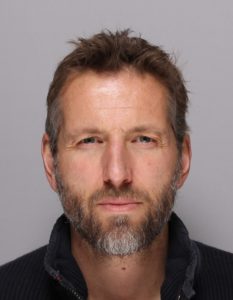OPC member Mikey Kay, a journalist and filmmaker based in Paris, wrote the following piece for the Bulletin to encapsulate the last year of his reporting on COVID-19 around the world, including challenges and people he met along the way. Kay’s work has appeared on BBC, CNN, ABC News, MSNBC, National Geographic, and more. He is director of the 2019 BBC documentary My Autistic Big Brother and Me.
by Mikey Kay
 “If the principle of freedom and human rights is higher than the fear of the dead, then it is very difficult to do anything concerning the epidemic.”
“If the principle of freedom and human rights is higher than the fear of the dead, then it is very difficult to do anything concerning the epidemic.”
Looking back over the last year on the hundred or so stories I have had the privilege of telling surrounding COVID-19, from China to the US, and many countries in between, this response from an interview with Slovakian epidemiologist, professor Vladimír Krcméry, has resonated with me, time and time again in the months since we spoke. The professor did not only have a phenomenal background on countering infectious diseases due to his experiences with Ebola in South Sudan, but he had also set up a shelter for the homeless in Bratislava, Slovakia, with the promise of food and cigarettes in return for the visitors agreeing to lockdown – he knew the transmission rates could be high and deadly among those living on the streets.
As journalists, we are passionate about communicating the truth through storytelling. But rarely do opportunities come along that give us the chance to purely focus on a long arc of episodes threading the brilliance of human beings in responding to tragic events.
In April last year, the Head of Global Brand and Digital Marketing at GE Healthcare, Kristin Fallon, called me to talk about the flood of positive and heroic stories that were emerging in her sphere of communications, from across the world as a consequence of the pandemic. “I want to create a news channel leveraging the access that we have, distributing remarkable stories across our social media platforms” – Kristin passionately relayed to me. A week later I was on the road, driving an RV solo across the U.S. from North to South – supported remotely by a dedicated team who were harvesting the stories. The pace was relentless, there were so many:
Brian is a production associate who had come out of retirement to work on the R860 ventilator line, at the Madison plant in Wisconsin as the demand for ventilators was surging globally. Paul is an analyst that had raised his hand to join Brian on the same production line. Lori and her teams are working day and night to ship the ventilators across the globe. Mohamad is in Tunis working to get hospitals the equipment they need to save patients with severe COVID symptoms. Professor Haibo Xu had imaged over fifteen hundred patients in Wuhan’s field hospital in a matter of months. Dr. Paul Friedman is the expert on how hydroxychloroquine affects the heart.
After forty-two stories produced and edited from the RV had been published in forty-two days, then Europe became the main focus: Dr. Roberto Fumagalli heads up an ICU in Niguarda Hospital in Milan, the Lombardy region being the epi-center of COVID in Europe – PTSD is affecting his staff as the families of the patients were not able to see their loved ones before they passed. Alberto is a volunteer ambulance driver at the center of Milan’s crisis response to COVID – he too found it heartbreaking that families could not join their loved ones on the journey to hospital, many never saw their loved ones again after that day. Dr. Aly Youssef is an OBGYN in Bologne who is extending the use of ultrasound beyond the womb to check the lungs of pregnant mums for COVID signs – did you know COVID-19 is highly unlikely to cross the placenta? Professor Revel in Paris lost a good friend to COVID and has spent her year dedicated to studying ten thousand CT chest scans to help build predictive algorithms to counter COVID. These stories are but the tip of the iceberg. There are many more to come but until then, I wanted to finish as I started, with another quote from my good friend, professor Krcméry.
“I have seen Ebola only once in my life when I was in South Sudan which was twenty years ago. We stopped the disease in the village, not through medicine or health because the vaccines were not available at that time – we asked the local police to stop the funeral ceremonies. If you live will the people and you know their habits, then you can understand the transmission procedure.”
What I am learning throughout this entire journey, is the criticality of encouraging and important story telling. Digging deep to uncover experts like professor Krcméry and telling his story, is crucial to helping shape the mood of society and galvanizing hope when the chips are down. Shining the lamp on those with experience who work in the shadows, is an important part of getting through this pandemic.
Click here for links to read some of the stories mentioned above.
